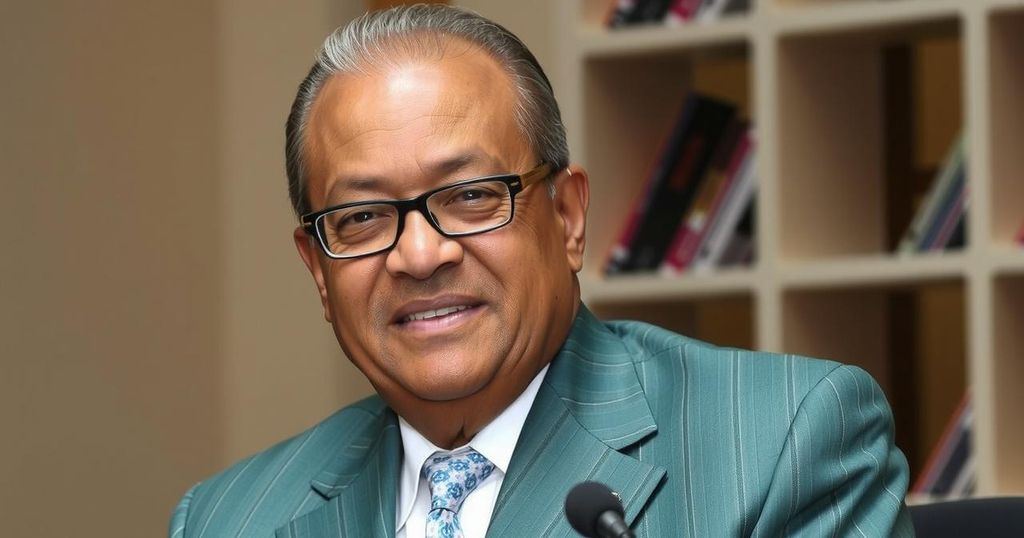Former Suriname President Desi Bouterse, convicted of 1982 murders, died at 79. Bouterse’s death has led to public gatherings and reflections on his controversial legacy, which includes a military coup and subsequent presidency marked by human rights abuses. His ties to drug trafficking figures also highlighted the complexities of his rule.
Desi Bouterse, the former President of Suriname, passed away at the age of 79 at his residence in Paramaribo, according to recent media reports. Bouterse, who was previously convicted for the 1982 murders of 15 political opponents during his military regime, has had a controversial legacy in Surinamese politics. His death has prompted gatherings of supporters outside his party headquarters as the nation reflects on his tumultuous rule from 1980 until his resignation in 1987 and later as an elected president starting in 2010.
Desi Bouterse’s political career has been marred by allegations and convictions related to human rights abuses during his military regime in the 1980s. He seized power in a bloodless coup and was later involved in various international controversies, including ties to notorious figures in drug trafficking. His political maneuvers included collaboration with opposition parties in neighboring Guyana to address mutual territorial disputes and resource-sharing, highlighting the regional implications of his governance.
The passing of Desi Bouterse marks the end of an era in Suriname, characterized by a blend of military rule and attempted democratic leadership. His legacy remains contentious, particularly due to his conviction for human rights violations and his connections to criminal elements. As Suriname processes his death, the impact of Bouterse’s governance continues to resonate in the political landscape of the nation and its regional relationships.
Original Source: demerarawaves.com






